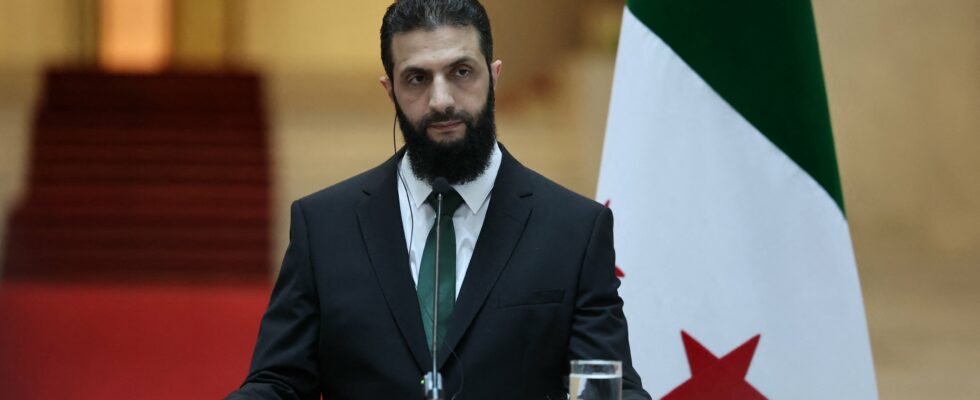With each public appearance, his black beard seems to shrink. Since his capture of Damascus on December 8, Abu Mohammed al-Joulani has swapped his nom de guerre for that of Ahmed al-Charaa. He then replaced his military outfit with a suit and tie, then his warlike speeches with the words of a diplomat. The former member of Al-Qaeda would have renounced international jihad for a “national jihad”, with the promise to respect all minorities in Syria. But also that of defending women’s rights, despite the clothing restrictions imposed in the province of Idlib, under its control for several years.
The strong man of Damascus even, for the first time in Syrian history, appointed a woman provincial governor and another governor of the Central Bank. Pledges of openness and stability, intended above all to ensure Western support and a rapid lifting of sanctions targeting the Syrian state. “Al-Sharaa says word for word everything he should say to reassure us,” an American diplomat told us recently. “He demonstrates extreme intelligence, which makes him all the more dangerous.”
A first lifting of sanctions
On January 6, the US Treasury announced economic sanctions relief for the next six months, including for businesses providing humanitarian aid and vital needs such as running water and electricity. Washington also removed al-Sharaa from its list of wanted terrorists, while a bounty of ten million dollars continued to hang on his head. Essential diplomatic victories for the Hayat Tahrir al-Cham (HTC) group, which intends to keep control of Damascus at the end of the transition period.
But already, this veneer of moderation is cracking everywhere. Beyond his refusal to shake the hand of Annalena Baerbock, the German Minister of Foreign Affairs – a habit unfortunately common among the region’s leaders – his attempt to transform school programs shows that the new master of Damascus does not has lost nothing of its Islamist and rigorous vision of society. In textbooks, “defense of the nation” had to be replaced by “defense of God,” with passages on the Assad dynasty redacted to make room for Islamic teaching in its most conservative version. All references to the theory of evolution were to be removed, as was much of the scientific program. In the chapters on History, Queen Zenobia, who reigned over Palmyra in the pre-Islamic era, was to be removed from the education of young Syrians.
Faced with public outcry and the appearance of spontaneous demonstrations in several Syrian cities, the reform was amended. But Christians and Jews remain described as “those who provoked God’s anger.” A taste of “moderation” in al-Charaa style.
The problematic profiles of Syria’s new leaders
At the same time, the past of the new masters of Damascus resurfaces with their appointments to high positions. The Minister of Justice, Shadi al-Waisi, was thus identified by the Syrian fact-checking platform “Verify” in videos from 2015 which show him assisting, even participating, in the executions of two women in Idlib. In the first video, he appears to be the one reading the indictment against a Syrian woman, on her knees, accused of “corruption and prostitution.” In the second video, a woman begs to see her children one last time, before being shot in the head in the street. Calls for the minister’s ouster have so far had no effect on al-Sharaa.
Another embarrassing profile, that of the spokesperson for the transitional government, Obaida Arnaout. Interviewed by a Lebanese channel in mid-December, he questioned the appointment of women to senior positions, particularly in the Ministry of Defense and in the field of justice, because of “their biological and psychological nature”…
Within the army too, al-Sharaa has cleaned up by appointing only rebels from his group to the highest positions, ruling out other armed militias for the moment. The military leader of HTC, Mourhaf Abou Qasra, thus became Minister of Defense in the transitional government and several foreign jihadists obtained military ranks.
Al-Charaa promised that this “HTC government” would only be in office until March, before a group of technocrats takes over. His timetable nevertheless worries more and more Syrian actors: the strong man of Damascus estimates that the drafting of a new Constitution will take around three years and that elections could be held only one year after its adoption. Which would allow him to keep power, at least behind the scenes, for four years. Enough to begin to shape the new Syrian society according to its criteria.
